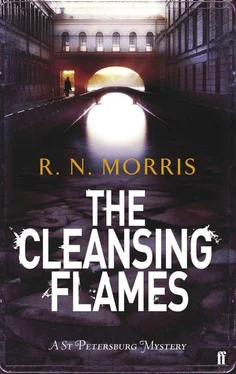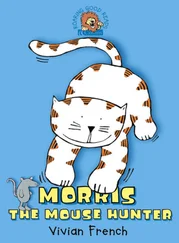R. Morris - The Cleansing Flames
Здесь есть возможность читать онлайн «R. Morris - The Cleansing Flames» весь текст электронной книги совершенно бесплатно (целиком полную версию без сокращений). В некоторых случаях можно слушать аудио, скачать через торрент в формате fb2 и присутствует краткое содержание. Год выпуска: 2011, ISBN: 2011, Издательство: Faber and Faber Fiction, Жанр: Исторический детектив, на английском языке. Описание произведения, (предисловие) а так же отзывы посетителей доступны на портале библиотеки ЛибКат.
- Название:The Cleansing Flames
- Автор:
- Издательство:Faber and Faber Fiction
- Жанр:
- Год:2011
- ISBN:0571259154
- Рейтинг книги:5 / 5. Голосов: 1
-
Избранное:Добавить в избранное
- Отзывы:
-
Ваша оценка:
- 100
- 1
- 2
- 3
- 4
- 5
The Cleansing Flames: краткое содержание, описание и аннотация
Предлагаем к чтению аннотацию, описание, краткое содержание или предисловие (зависит от того, что написал сам автор книги «The Cleansing Flames»). Если вы не нашли необходимую информацию о книге — напишите в комментариях, мы постараемся отыскать её.
The Cleansing Flames — читать онлайн бесплатно полную книгу (весь текст) целиком
Ниже представлен текст книги, разбитый по страницам. Система сохранения места последней прочитанной страницы, позволяет с удобством читать онлайн бесплатно книгу «The Cleansing Flames», без необходимости каждый раз заново искать на чём Вы остановились. Поставьте закладку, и сможете в любой момент перейти на страницу, на которой закончили чтение.
Интервал:
Закладка:
She had delivered four babies that day, the first to a merchant’s wife in Vasilevsky Island, the second to a clerk’s wife in Narvskaya District, the third to a prostitute in Kazanskaya District, and the fourth to the wife of a factory worker, who already had six other children, huddled together in a damp cellar in Spasskaya District. Perhaps the strange physical sensations she was experiencing were symptoms of a kind of elation. She ought to be at least satisfied with a good day’s work. The babies had all been born alive, although she could not vouchsafe how long they would remain so. The mothers too had survived the trauma of childbirth. And yet she could not shake off the sense that she was helping to bring children into a terrible world, and therefore she was complicit in fashioning the joyless, loveless destinies that awaited them; in their oppression, in other words. Many of the babies she delivered were unwanted. They would grow up — if they survived infancy — experiencing only hardship and misery. In all likelihood, the girls would become prostitutes; the boys, drunken brutes, fathering more unwanted children. And so it went on. Ignorance breeding ignorance.
She relied on two consolations to bring herself out of these depressive states: the first was her commitment to the revolution, her determination to do what she could to create a better world for the four babies she had delivered that day to grow up in; the second was her enjoyment of the small collection of fine objects she had managed to accumulate over the years. She was aware of the contradiction inherent in these positions. It had been pointed out to her enough times by Kirill Kirillovich and his friends. But as far as she was concerned, both were essential to her, and therefore she saw no difficulty.
At times, however, the latter consolation, that of beautiful objects, was more compelling than the allure of a distant, unachieved future. There was so much uncertainty on the way to a better society, so much debate and disagreement, about methods and means, not to mention objectives, that it was hard to maintain her commitment to the cause at every minute of every day. The present was dominated by sacrifice, as the immediate future would be. There was the very real possibility that she herself would not live to enjoy the rewards that would one day come. In the meantime, all that was left to her was to obey unquestioningly whatever was asked of her by the central committee. But she had to confess, she found this harder than she might have hoped. For example, she had been called upon to harbour the man in the next room. She did not like him. She did not trust him. But it seemed that he was a hero of the revolution, or on the verge of becoming one. And so she must share her apartment, and her food, with him.
It was hard to bear. And what was worse, her husband had left her alone with the interloper. The creak of the window opening in the next room reminded her forcefully of his presence. She sat up and turned her head, to indulge in the second of her consolations, which in this instance meant gazing across at the ormolu clock she had retrieved from the living room, now placed on her rococo dressing table.
It was almost six o’clock. Kirill Kirillovich should be home soon. Varvara Alexeevna rose from her bed and crossed to the window to look out for him. As she reached the window, she noticed a paper dart drift down towards the courtyard. She instinctively pulled back. A man was standing near the entrance to the courtyard. At first, there seemed to be no connection between this man and the paper dart, which he seemed determined to ignore. Indeed, it was his insistence on not looking at the dart, or at the window from which it had been thrown, that convinced her he was linked to it in some way. At last, the man began to walk casually across the muddy space, pausing only to pick up the paper dart, which he pocketed without reading.
‘The ruse’
Porfiry Petrovich was sitting up in bed, a selection of newspapers spread out over him, as if the hospital had run out of linen and had resorted to these grubby paper sheets instead. He seemed unusually chipper, particularly for someone who had apparently been shot at close range. A small gauze dressing was fixed to his cheek with adhesive tape. His face around the dressing appeared tender and swollen. The room, of which he was the sole occupant, smelt of carbolic acid.
A polizyeisky positioned outside his door had been authorised to admit only Nikodim Fomich and Dr Pervoyedov. Indeed, the polizyeisky himself had been forbidden from entering the room, although there was nothing to prevent him, other than his unquestioning instinct for obedience. The man had been chosen for his singular lack of imagination and curiosity.
Porfiry looked up as the door opened and Dr Pervoyedov came in. The doctor’s expression had settled over the past day or so into one of determined, seemingly unshakeable resentment. The raw, heart-punching fear he had felt the day before, when he had first walked into Porfiry’s chambers to see his friend leaching blood from a chest wound, was still with him, a spur to his anger now. Confused and alarmed by Zamyotov’s panic, by his garbled talk of gunshot and blood, it had at first been impossible for Dr Pervoyedov to take in what Porfiry was saying to him: that there was no need to worry; that he was not hurt; that Virginsky had not really shot him. That it was all a ruse.
‘A ruse ?’
‘Yes, a ruse!’ How infuriatingly pleased with himself Porfiry Petrovich seemed when he shared his secret. Only just released from the anxiety of thinking his friend injured, Dr Pervoyedov felt a powerful urge to inflict the pain he had imagined Porfiry to be suffering. In the event, his adherence to the Hippocratic Oath prevailed. That was when he first noticed the nick on Porfiry’s cheek.
‘Pavel Pavlovich discharged a blank cartridge!’ hissed Porfiry, between delighted wheezing gasps of laughter.
‘He did what?’
‘We plugged the cartridge with a wad of paper. This,’ said Porfiry, holding up the hand that had apparently been staunching his wound, ‘is pig’s blood!’
Dr Pervoyedov’s face contorted into an expression of distaste at the memory, though all the pig’s blood had by now been cleaned up. His distaste was at the part he had been forced to play in the deception. It was all very well for Porfiry Petrovich to indulge in these pranks, but to involve others, such as himself and Pavel Pavlovich Virginsky — well, that was going too far.
Of course, Porfiry Petrovich had insisted that it was not a prank. He preferred the word ‘ruse’, and had asserted that it was entirely necessary, if Virginsky was to be accepted as a committed revolutionist.
At that point, Dr Pervoyedov had given vent to his feelings by indulging in a spate of unscientific language, briefly summarised by the question, ‘Have you any idea of the danger to which you are exposing that boy?’
‘But the whole thing was Pavel Pavlovich’s idea!’ declared Porfiry, as if that justified everything.
Dr Pervoyedov had shaken his head in exasperation. His anger at Porfiry’s recklessness — how could an intelligent man be so stupid? — distracted him from whatever duty of professional care he might have owed as a doctor. For although he had noticed the nick, and realised it was a genuine abrasion, he did nothing about it. In his defence, it appeared extremely minor. (But was there a desire to punish Porfiry in this trivial act of neglect? If so, the doctor never admitted it.) He ought perhaps to have intervened when Porfiry carelessly rubbed the graze with the hand that was stained with pig’s blood, but at the time he had been in full abusive flow. He had scarcely noticed the movement. Furthermore, he had been so caught up with Porfiry’s definition of the event as a ‘ruse’, which implied something harmless and even amusing, that it was almost as if he had developed a professional blind-spot.
Читать дальшеИнтервал:
Закладка:
Похожие книги на «The Cleansing Flames»
Представляем Вашему вниманию похожие книги на «The Cleansing Flames» списком для выбора. Мы отобрали схожую по названию и смыслу литературу в надежде предоставить читателям больше вариантов отыскать новые, интересные, ещё непрочитанные произведения.
Обсуждение, отзывы о книге «The Cleansing Flames» и просто собственные мнения читателей. Оставьте ваши комментарии, напишите, что Вы думаете о произведении, его смысле или главных героях. Укажите что конкретно понравилось, а что нет, и почему Вы так считаете.












